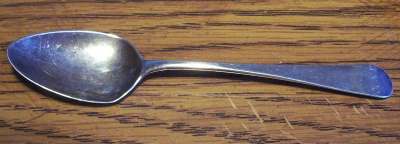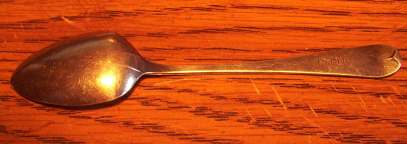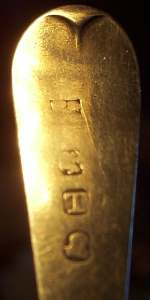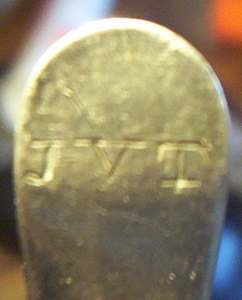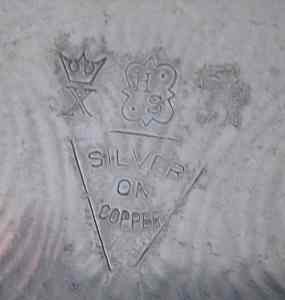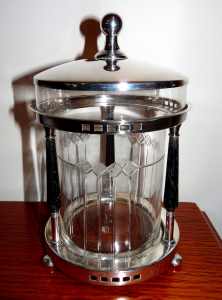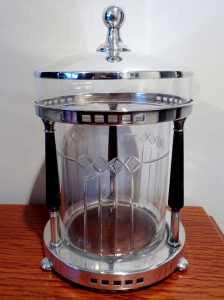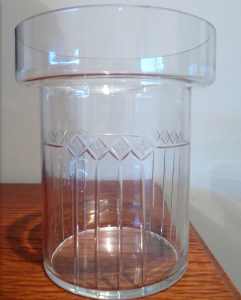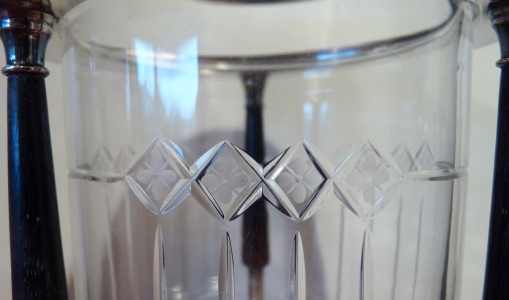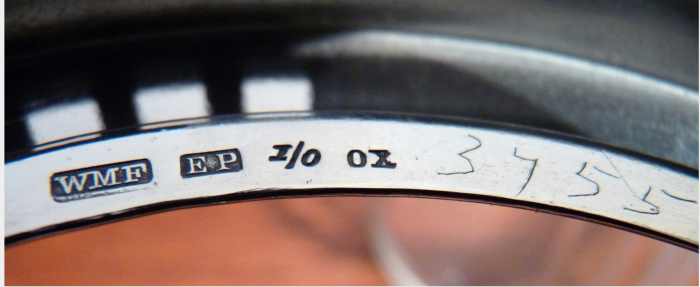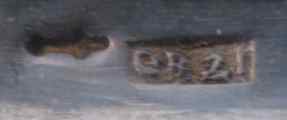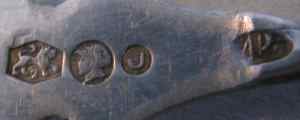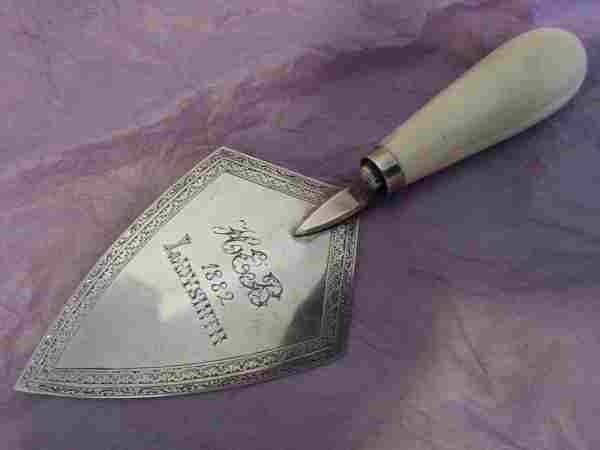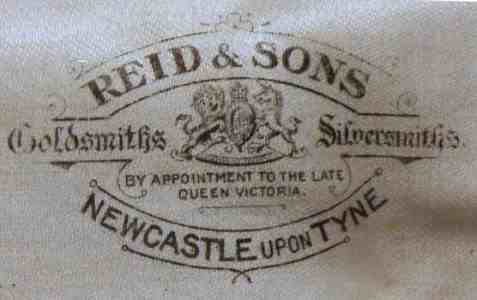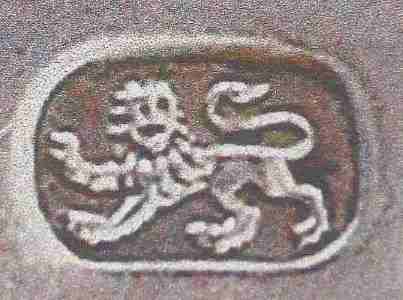
David McKinley presents:
THE GOLDSMITHS' COMPANY OF LONDON'S STERLING STANDARD

When in the year 1300 the standard for silver in England was set
at 11 ounces and two pennyweights in the Troy pound (925 parts
in 1000), it was related to money and as far as wrought plate
was concerned it had to be as good as money. The Statute 28 Ewd.
Cap. XX which introduced this standard reads as follows: "It is
ordained, That no Goldsmith of England, nor none otherwhere
within the King's Dominions, shall from henceforth....... work
worse silver than money".
This requirement that wrought plate be closely related to money,
or sterling as it has always been known, has, over the
centuries, given rise to problems for the Wardens of the
Goldsmiths' Company who have always assiduously applied what
they believed to be their responsibility in upholding this
law.....
click
here

Welcome to new ASCAS members:
Terry Ash - England UK
Peter G. Barrett - South Africa
Christine Liberato - USA
Elizabeth Matthews - South Africa
Ray Matthews - South Africa
Danusia Niklewicz
John Staunton - Australia
Douglas Shand writes:
...I'm far from an expert on silver marks, etc but I came across
this spoon (5 inches in length) and while I am quite sure it is
English (king's bust duty mark) and it was made in 1814 (letter
"T") plus the purity mark (lion passant) and the maker mark,
which is shown as well however it is worn heavily so I am unable
to identify it.
Oddly there is no town mark to indicate where it was assayed or
any sign of where it would have been... Is it common to be
missing this component?
The initial "J V T" on the opposite side I assume was that of
the owner.
Any assistance would be greatly appreciated.
Thank you.
Douglas Shand
The Assay Office is London. Often the town mark is missing
on spoons presumably to prevent duty dodging by transposition of
the hallmark on a larger object (see my website at
http://www.silvercollection.it/dictionarydutydodger.html
You are right about the meaning of "JVT".
Giorgio Busetto
Linda Naguillen writes:
... I have an antique 17" silver on copper plate. On the back it
has a triangle with markings of SILVER ON COPPER and three
symbols consisting of a crown with X on the bottom, another
symbol and letters HS inside another symbol I'm unable to
identify.
Any help would be greatly appreciated.
Linda Naguillen
Sharon Kent writes:
...Thanks for letting me share my recent find. It wasn't until I
got home that I realised how lovely this is, as it was in an
auction lot with other items in a box.
I have tried to find out on the internet about the makers marks
and came across your great website.
I would love to know more about this... like what was it used
for? .I have narrowed it down to either a biscuit or bon bon jar
but I could be wrong.
What this style is called?
Who may have designed it?
Some idea of date?
Also If you could let me know if you have seen any like this
before.
It has a cut glass insert with etched/engraved flowers. The three
pillars are made of wood.
It also has a small letter d on the frame near the hallmark.
The size is: 205 mm tall x 130 mm diameter
Thank you for your time.
Look forward to your comments.
Sharon Kent
In my opinion your item is a biscuit holder made at the
beginning of the 20th century.
Various biscuit holders in glass with a silverplate frame are
present in 1906 WMF catalog.
Any further suggestion will be welcome
Giorgio Busetto
Peter van Oel writes
The light gauge of the silver mocha spoon and sugar shovel,
twisted stem and the decoration are typical for silver made in
the city of Schoonhoven. GB 21 the maker's mark of Gerrit van
den Bergh, registered in the city of Schoonhoven from 1876/1921,
died in 1922.
Mocha spoon; Minerva head with the regional assay office letter
M for Schoonhoven. The maker's mark appears to be .AP. in oval
for A. Pluut Jr. registered in Schoonhoven 1915-1942. In 1915 A.
Pluut Jr took over the workshop of Frank Fluut (1896-1915) known
spoon maker. Date letter J for 1919.
Peter van Oel
Robin Holmes writes
These 'trowel' presentation pieces were very common at that
time, and in fact continued to a lesser extent for a few decades
thereafter.
My guess is that there was nothing to commemorate other than a
birthday or maybe a Christening. The handle would be ivory. And
yes almost certainly a slice of cake lifter.
The joy for me in these pieces is the brightcut engraving, which
in this case is superb.
Robin Holmes
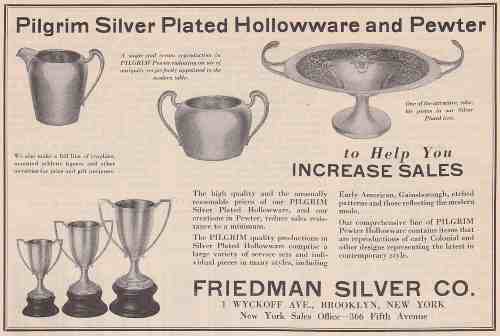 |
This month ASCAS presents an ancient advertisement
of:
FRIEDMAN SILVER CO
1 WYCKOFF AVE. BROOKLYN NEW YORK
Active in Brooklyn, New York since 1908.
Created the Pilgrim Silver Plated Hollowware line.
The firm was bought by the Gorham Corporation in 1960
This image is part of the
ADVERTISEMENTS IN SILVER - SILVER ADVERTISING
section of www.silvercollection.it website
|
"A WORD per MONTH"
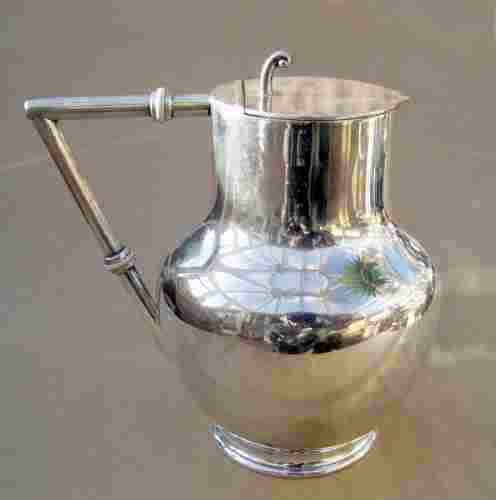
|
TENBY JUG
A silverplate jug of compressed baluster form, the
flat hinged cover with scroll knop and angular handle.
The hinged lid could be opened still holding the jug.
The jug was rewarded in Pembrokeshire as the bringer of
good luck.
According to the 'Tenby Official Guide', dated 1919, the
Tenby Hot Water Jug was a 'jug for conserving hot water.
Its convenient size, shape and attractive design
harmonises with any silver or china service. Based on a
design connected with local tradition. It makes for home
folks and those from away, a most charming gift'.
The maker was James Truscott (1847-1937) who established
his business in Tudor Square, Tenby in 1870. He moved in
1883 to new premises at 13 High Street on the corner of
St. Nicholas Lane where the firm continued the trade
until its closure (1937)....
more
|
"A SILVERSMITH per MONTH"
|
|
REID SILVERSMITHS (REIDS)
CHRISTIAN KER REID - REID & SON - REID & SONS - REID
& SONS LTD
CRADDOCK & REID - WILLIAM KER REID - EDWARD KER REID
The business was established
in Newcastle-upon-Tyne in 1778 by Christian Ker Reid
(1756-1834).
After his death, the business was continued by his sons
William Ker Reid (1787-1868), David Reid (1792-1869) and
Christian Bruce Reid (1805-1889).
Reid family was closely related with Barnard family, as
the brothers William Ker and David Reid married Mary and
Elizabeth Barnard, daughters of Edward Barnard I,
founder of the firm Edward Barnard & Sons. Edward Ker
Reid (son of William Ker Reid) married in 1847 Anna
Barnard, daughter of John Barnard I (they were cousins
and both grandchildren of Edward Barnard I).
When Christian Bruce Reid retired (1845) his two
brothers were joined in the partnership by Christian
John Reid (1816-1891, son of David Reid).
The firm, known as Reid & Sons, was active at 12 Dean
Street, 14 Grey Street (1843) and 41 Grey Street,
Newcastle (1855).
The firm was present at the 1851 Great Exhibition and at
the 1862 International Exhibition....
more
|
"A CREST per MONTH"
ABEL-SMITH
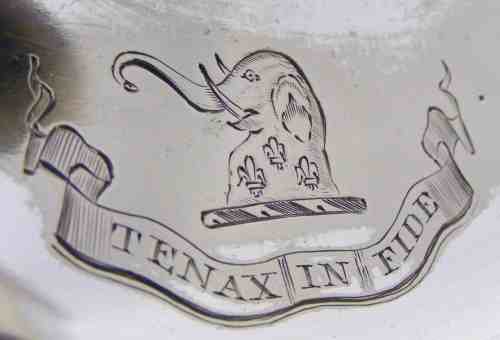 |
The crest of Abel-Smith family
of Woodhall Park, Hertfordshire.
An elephant's head erased. The Latin motto is "Tenax in
Fide" (Steadfast in the faith).
The elephant's head erased with three blue Fleur-de-Lys
on the shoulder above a sashed wreath bar and "TENAX IN
FIDE" is also the Coat-of-Arms for the Royal New South
Wales Lancers (Cavalry).
The crest was found on a silverplate candlestick made by
Martin, Hall & Co
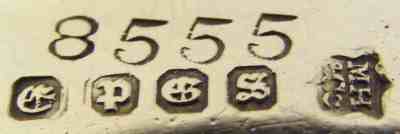
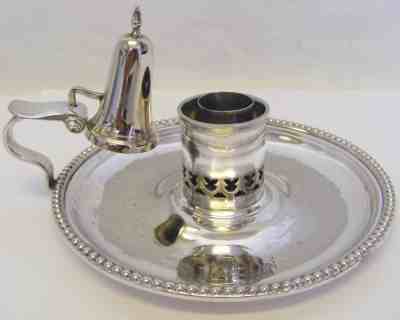 |
Closing our SEPTEMBER 2014 edition of ASCAS Newsletter I hope
you have appreciated its content.
Your comments, suggestions and advice will be of great help.
My thanks to Robin Holmes, Sharon Kent, David McKinley, Linda
Naguillen, Douglas Shand, Peter van Oel for their precious
contributions.
Giorgio Busetto
Secretary
DISCLAIMER AND PRIVACY POLICY
ASCAS is a community of people having a common
interest in antique silver.
It is a non-profit association without commercial links.
Membership is open to whomever has a true interest in
this subject matter.
ASCAS has no real property and no fees are requested nor
accepted from members.
ASCAS keeps in touch with its members only through
periodical newsletters, e-mails and web-site updating
and ignores and is not responsible for any other
activity pursued by its members.
Likewise, ASCAS is not responsible for opinions,
evaluation and images displayed, and in any form
published or supplied for publication, by its members
who, in any case, maintain the property of their works
and assure the respect of national and international
legislation about Intellectual Property.
ASCAS does not have the full addresses of its members (only
town, country and e-mail address are requested for
membership).
ASCAS handles and protects with care its members' e-mail
addresses, will not disclose the addresses to third
parties, will use this information only to reply to
requests received from members and for communications
strictly related to its activity.
These rules are expressly accepted by submitting the
membership request.
|
|
 newsletter
# 124 September 2014
newsletter
# 124 September 2014









